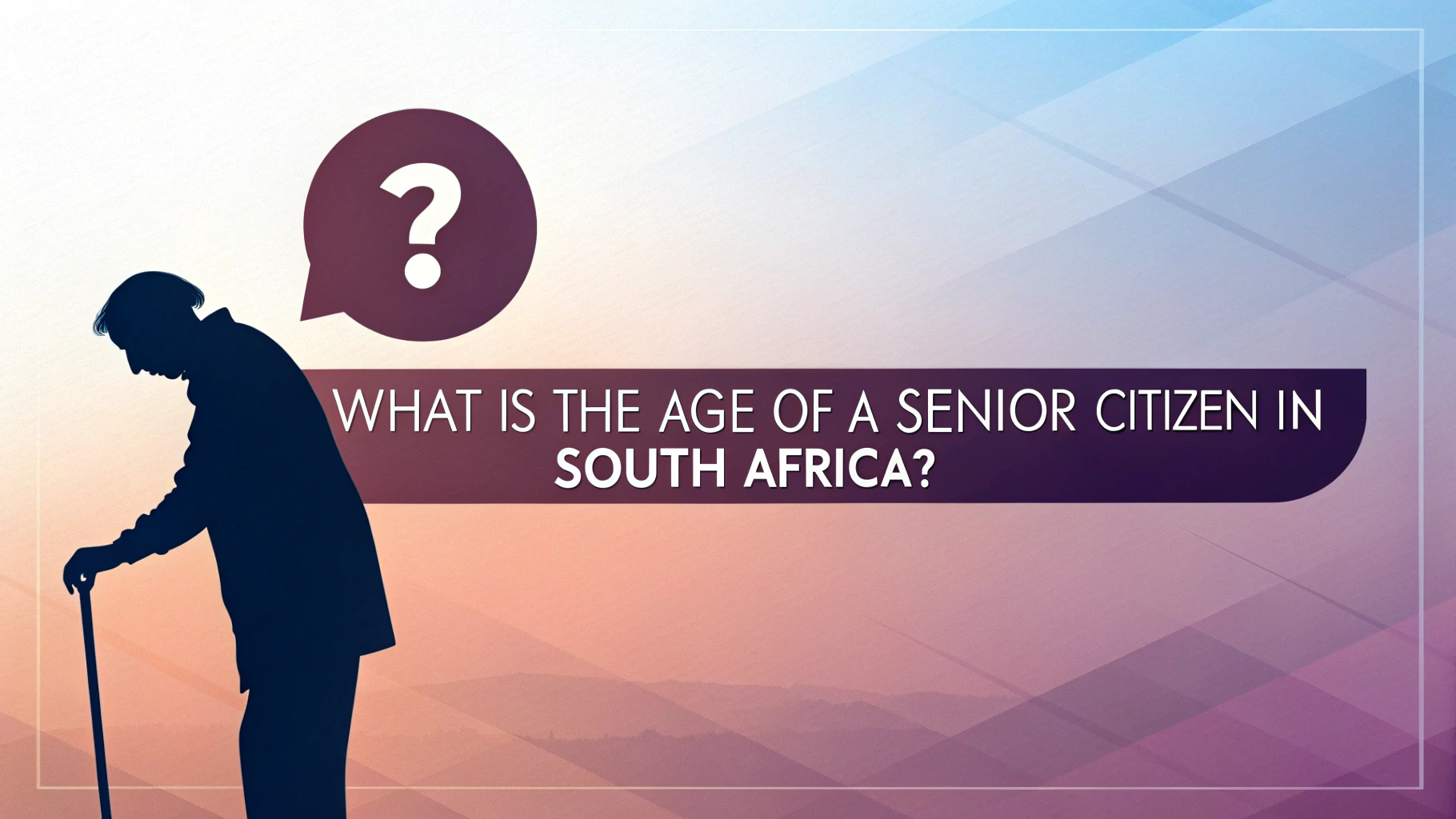A senior citizen is generally defined as an individual who has reached a certain age that qualifies them for specific benefits and social protections. In South Africa, this designation is crucial for accessing government support programs, financial aid, and other age-related benefits. But what is the official age that defines a senior citizen in South Africa? This blog explores the legal definition, benefits, and challenges faced by senior citizens in the country.
What is the Official Age of a Senior Citizen in South Africa?
In South Africa, a person is considered a senior citizen at the age of 60 years or older. This is established by the Older Persons Act, 2006 (Act 13 of 2006), which defines an "older person" as someone who has attained the age of 60 years. This age threshold applies uniformly to both men and women, ensuring gender equality in social and legal benefits.
The South African Social Security Agency (SASSA) further reinforces this definition, as eligibility for the old age grant begins at 60 years. While some employment-related retirement discussions refer to 65 years, this does not affect the official senior citizen status, which remains at 60.
Why is 60 Considered the Senior Citizen Age?
The decision to set 60 years as the official senior citizen age is based on social, economic, and policy considerations, including:
- Alignment with Pension and Welfare Systems: Government grants and social security programs are structured around this age.
- International Comparisons: Many other countries also recognize 60 or 65 as the senior citizen age.
- Historical and Demographic Trends: Statistics South Africa data shows that the elderly population (60+) has grown significantly over the years, influencing policies.
Benefits and Support for Senior Citizens in South Africa
South African senior citizens enjoy various government and private sector benefits, including:
Government Grants
- The SASSA Old Age Grant provides financial support to citizens aged 60 and above who meet the means test criteria.
- As of recent updates, the grant amount is R2,180 per month for those aged 60-74 and R2,200 for those 75 and older.
Healthcare Benefits
- Access to free or subsidized healthcare in public hospitals and clinics.
- Chronic medication support for conditions like diabetes and hypertension.
Tax Benefits
- Higher tax rebates and lower tax rates for individuals over 60.
- Exemptions on capital gains tax and medical expenses deductions.
Public Transport & Discounts
- Discounts on public transport fares.
- Lower rates on municipal services and utility bills.
Challenges Faced by Senior Citizens in South Africa
While benefits exist, senior citizens in South Africa face various challenges:
- Financial Struggles: Many retirees rely solely on government grants, which may not be sufficient.
- Healthcare Access Issues: Long waiting times and shortages in public hospitals.
- Social Isolation: Many elderly individuals experience loneliness, especially those without family support.
- Employment Concerns: While some wish to work beyond 60, limited job opportunities exist for seniors.
How to Prepare for Senior Citizenship?
To ensure a comfortable and secure retirement, individuals should:
- Plan for Retirement Early: Invest in pension funds and savings accounts.
- Consider Medical Aid and Insurance: Secure private healthcare options to supplement government services.
- Stay Active and Socially Engaged: Join community groups and maintain strong social networks.
Conclusion
In South Africa, a senior citizen is officially recognized at 60 years old, as per the Older Persons Act, 2006. This classification allows individuals to access various government benefits, including the SASSA old age grant, tax rebates, and healthcare support. While challenges such as financial security and healthcare access remain, planning ahead can help mitigate these issues. Understanding the official senior citizen age is essential for individuals, families, and policymakers working to improve the lives of older South Africans.
